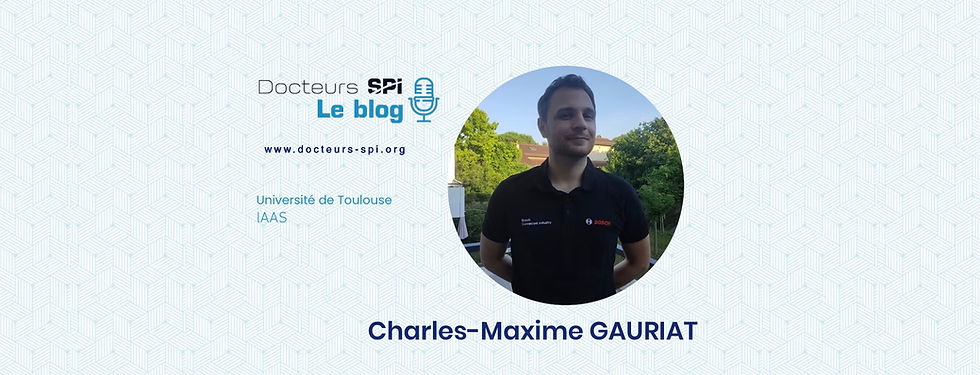Ilaria CHILLOTTI, Cryptography Research Director, ZAMA
- Ilaria CHILLOTTI

- 23 mai 2023
- 4 min de lecture
Dernière mise à jour : 29 sept. 2024

Merci beaucoup d'avoir accepté l'interview.
Tell us about your educational journey before your thesis, and how and why you decided to pursue a PHD
The journey leading me to the work I do today started at the end of high school, when I had to decide which university faculty to choose. I had many things in mind that I wanted to try. One of them was cryptology. I heard about it in some documentaries and by reading books. I found it fascinating.
Cryptology is a crucial science for securing our communications. Among other things, it focuses on how to hide information so messages stay private. Being able to hide messages and protect data caught my attention. Plus, cryptography is a mix between mathematics and computer science, and I always loved math. So I asked my math teacher for advice, and he suggested I go for math if cryptology was what I wanted to do.
This is the main reason why I took Mathematics at the University of Cagliari (Italy).
Unfortunately, in this university there were no classes or masters dedicated to cryptology, but I had the chance to do an Erasmus program during the third year, which opened my eyes to a new world. I went to Grenoble where I discovered that the university had a master entirely dedicated to cryptology.
Naturally, once I finished my bachelor's in Cagliari, I decided to continue my studies with the master in Grenoble. The master allowed me to finally study cryptology as I wanted and, since it was oriented on research, it made me think about the possibility of starting a career as a researcher. The choice of doing a PhD was quite straightforward.
How did your career develop after your PHD and what was your first professional experience?
I consider my PhD program to be my first professional experience because it is really the first step to become a researcher. It is a sort of trial by fire. Even if your status is still that of a student, the path you start is completely different: no classes or exams but work to find results and discover new cool stuff, with ups and downs.
My PhD subject was about improving a recent encryption technique called Fully Homomorphic Encryption (FHE), which allows operations over encrypted data. I had the chance to work with amazing researchers and to learn so much. In particular, I co-authored and developed a new scheme called TFHE, which is one of the most used FHE schemes at the moment.
After the end of the PhD program, I had a quick experience during the summer at Microsoft in the USA, and then I did a Post-Doc in KU Leuven University in Belgium. All these experiences focused on research and in pushing forward the work I already started during my PhD. After that, I joined Zama, a startup developing FHE as a product, based in Paris, where I currently work.
You are Cryptography Research Director at Zama. Can you tell about this position and how the work on your thesis applies to your current job?
The scheme that Zama develops is a variant of TFHE, the FHE scheme that I worked on during my PhD. I manage one of the two research teams at Zama, and I coordinate it together with my colleague Damien Ligier. My team focuses on improving the scheme by proposing new techniques that make it more efficient and increase its functionalities. We try to provide a solution to all the problems coming from the practical use of the scheme. We collaborate with the product teams of the company: we provide new techniques that they can integrate, and they provide us with problems and interesting use cases to study.
What I find interesting in my job is the constant exchange of knowledge and learning. There are so many different backgrounds in Zama, so the opportunities to grow together are continuous.
What are the job opportunities you see in the future for someone with your background?
I think there are plenty of possibilities for somebody with a similar background. It is possible to follow an academic career in a university, but also to move to the industry where such profiles are sought. Mathematics and computer science are two fields that have a huge impact on several areas, especially in this moment in time, where connection and communication are so central in our daily lives.
What advice would you give to women thinking about studying maths and pursuing a career in STEM?
I’d say go for it! If you like tech, you should follow your passion.
Unfortunately, the tech industry is still mostly dominated by men: the more I advanced in my studies and career, the more I could notice it. And because of this, I think many women are often discouraged to even apply to STEM positions. And even if they do, there are many stereotypes that make their work more difficult than their male counterparts, even though they have the same skills. But there is no reason why things should stay that way forever.
In recent years we have seen a growing attention and interest for women’s roles and contributions to the sector. There is a growing number of events every year dedicated to women in tech, providing great platforms for them to network and share experiences..
So if you want to pursue a career in STEM, don’t let anything or anyone stop you from reaching your goal.
Zama: advancing homomorphic encryption






Commentaires